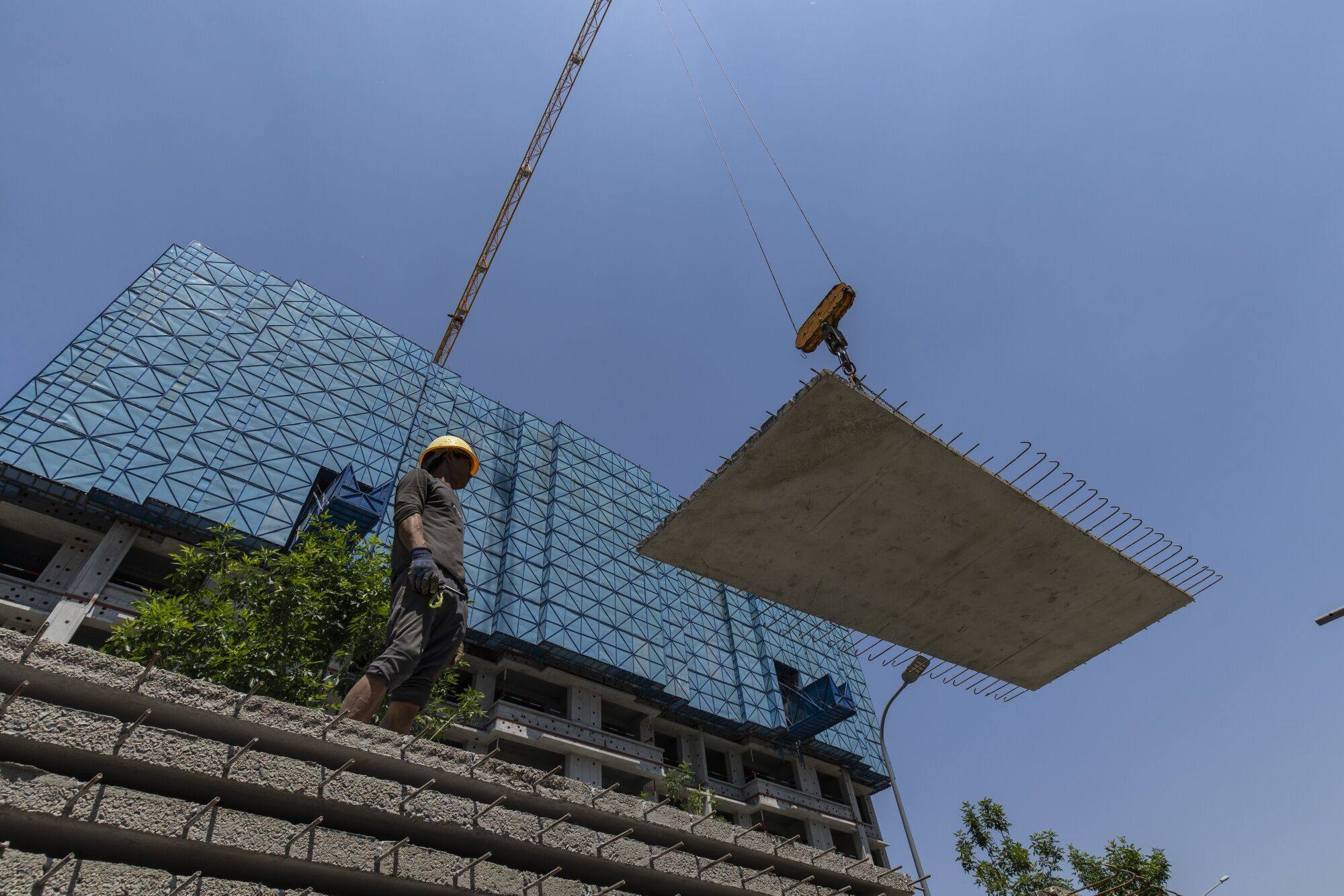Expectations about an extended decline in home prices and shrinking incomes among wealthy families, plus jitters about the ability of cash-strapped private developers to deliver homes, will continue to keep homebuyers at bay, Zhu Haibin, Hong Kong-based chief China economist at the US bank, said at a briefing on Wednesday.
Those factors may partially offset the impact of the stimulus package, which includes cuts in the down payment and mortgage ratios as well as a 300 billion yuan (US$41.4 billion) relending facility to fund state purchase of unsold houses, he said.
“It remains to be seen whether the measures will become the game changer for the property market,” Zhu said. “We are cautious about the possibility that the property market will stabilise or rebound. A recovery may need more time than expected.”
The briefing was a warm-up to a two-day annual China summit hosted by JPMorgan, which starts in Shanghai on Thursday. The event will bring 2,500 delegates from 1,300 companies across 33 countries and markets, according to the company. Key speakers include Jamie Dimon, JPMorgan’s chairman, Bill Gates, co-founder of Microsoft and Joe Tsai, co-founder and chairman of Alibaba Group Holding, which owns the Post.
Policy support for China’s embattled property market is gaining traction after years of declines in home prices prompted bearish calls by foreign investors on China’s economic growth prospects and asset prices. An economic pillar that once accounted for a quarter of China’s economy, the market remains a potential drag on growth and a recent rally in stocks.
The 300 billion yuan relending programme offered by the central bank to help local governments purchase unsold homes may not be big enough to clear excessive inventory, but policymakers are on the right track to resolve the housing crisis, said Zhu.
“We have seen more willingness from the government to stabilise property,” he said. “That’s like killing three birds with one stone. These policies can speed up the process of de-inventory, counter the decline in property investment and indirectly boost domestic demand and consumption.”
Stabilisation in the property market will help more industries resume earnings growth this year, said Wendy Liu, chief strategist for Asia and China equity at JPMorgan, at the same briefing. The companies on the MSCI China Index delivered an average of 9.3 per cent profit growth in 2024, with the telecoms, internet and healthcare sectors being the best performers, she said.

She expects the MSCI China gauge to finish the year at 66 in the neutral-scenario case, representing a 4.2 per cent gain from its current level.

